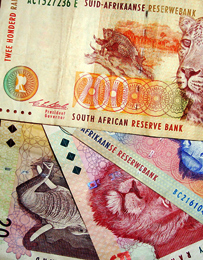
For some South Africans paying a bribe is the efficient way to get things done. It’s a basic transaction whereby someone provides a service and, in return, is compensated. But this is no lawful contract and many people are learning the hard way that dealing with corrupt individuals through bribery is not only risky, but highly inefficient in the long run.
These two cases, reported to Corruption Watch, illustrate the slippery slope one is led down when willingly participating in bribery.
Paul Sithebe owned a mini bottle store in Sebokeng, south of Johannesburg. Earlier this year he received a notice that his liquor licence was about to expire. At this point, Sithembe could have contacted the Gauteng Liquor Licence Board, which would have told him that all he had to do was pay a renewal fee to SARS, which would have cost less than R5 000.
“I didn’t have enough time to go to the liquor board,” he said.
Sithebe decided to circumvent the authorities. Through word of mouth he heard about a so-called public official, known only as Sibongile, who could organise a liquor licence without going through the regular channels.
The bottle store owner contacted Sibongile, who agreed to take on the job. Initially everything seemed legitimate as Sithebe was asked to give her his ID number and expired liquor licence number. Her bribe for the licence was R1 500 and it was promised that he'd have the document within 20 days.
Weeks later Sithebe was informed that the initial bribe wasn’t enough and that he would have to transfer an additional R3 600 to Sibongile. Again, Sithebe complied and sent the money through Checkers money transfer without ever receiving a receipt.
Four months later, Sithebe is now working as a driver. His business was closed down due to the expired licence. The days of being a business-owner are over for Sithebe and Sibongile, the person who was supposed to get him a new licence illegally, refuses to take his calls.
When contacted by Corruption Watch, Sibongile refused to comment and threatened to sue the organisation for disseminating any false information. She also refused to give her last name, meaning Corruption Watch is unable to verify her position within the public sector.
Sithebe eventually spent more than R5 000 trying to buy a liquor licence from someone who he still believes to be a public official. So instead of going the legal route, he lost out on over R5 000 and lost out on being a business-owner. What’s more is that he cannot report the matter to the police because he was part of the illegal activity.
Taken for a ride
In the second case the complainant learned that coughing up money for the promise of a job just isn't worth it. It’s also just as dishonest and illegal as soliciting a bribe.
A staff member working for the Amathole Municipality in East London offered a group of women jobs in government for a R3 000 bribe. The person who reported the incident told Corruption Watch that she had paid the municipal employee his “fee”, but had not heard anything since.
Today the woman is remorseful for partaking in such an activity and with the help of Corruption Watch has reported the incident to the local anti-corruption hotline, to which she can remain anonymous but still report the corrupt official’s name.
“My family said I must stop reporting this because I will get in trouble, but I don’t mind because I want this guy to stop asking for bribes,” she said.
Tourists targeted
But it's not only South Africans who fall prey to bribery and corruption. Earlier this month four Chinese visitors were harassed by the police for not giving them an adequate bribe at OR Tambo International Airport.
“After they rented a car and were on the verge of leaving the rental area to go to their hotel, they were stopped by two policemen. They claimed the driver of the car … did not stop at a yield sign,” wrote Wouter Badenhorst, who submitted the report to Corruption Watch. “One of the visitors realised that the policemen wanted money and put R200 in an officer’s hand, hoping the issue would be resolved.”
The cops then rightly accused the visitors of trying to bribe them, but instead of arresting the tourists, they began bargaining for an even bigger bribe. The police wanted more than R4 000, but settled on R2 400.
After paying the cops, the tourists were stopped again by another set of police down the road and were asked for a second bribe.
“The visitors stated to these policemen that they had just settled seconds ago with other cops who were still on the scene 40 metres behind them. The police then all gathered and decided to share the loot,” explained Badenhorst.

